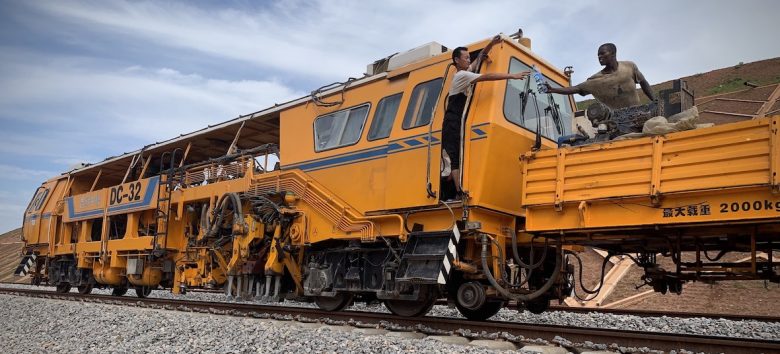Global Gateway or Dead End?

BRUSSELS – For almost 10 years China has been diligently building a new Silk Road. Through ports, railroads and other infrastructure it is trying to bind other countries economically to itself. Although this leaves partner countries with a lot of debt and some projects are not very profitable, the new Silk Road has contributed to Chinese exports and remains profitable. Global Gateway should be called that project. But it remains difficult to be enthusiastic.
Europe’s goal is to provide a sustainable alternative to China’s Silk Road also known as the Belt and Road Initiative. Brussels is committed to putting some €300bn into that over the next five years – €60bn a year, in other words.
“Fairness, sustainability for partners and long-term benefits for all people in the world,” these should be the benchmarks. So Global Gateway would have to balance commercial interests with concerns for local development.
Nice, but grossly late and often beside the point. The premise is that Europe enjoys credibility as an honest-and-responsible partner, while China short-sightedly fumbles with credits and mega-projects that benefit no one.
To some extent that is true, but China has also learned some important lessons from the first phase of the New Silk Road. Local workers, higher quality
Although there are still many Chinese adventurers at work in Africa, Asia and other regions, the Beijing government is urging companies to be cautious, to hire more local workers and above all not to tarnish the image of the homeland with poor quality.
European competing companies like to talk about the malpractices, the Chinese roads that are broken after a year, dams that don’t work. But that’s not always the case anymore. Chinese companies today can indeed handle complex projects and learn very quickly. On top of that, they are also getting smarter about financing.
As Kjeld van Wieringen’s research showed, for example, they are focusing on public-private partnerships and taking more account of local needs. Does it all run perfectly? By no means. But China is also no longer the reckless investor that Europe can trump by coming up with something smarter.
The Global Gateway also starts from a rather naive view of the geo-economy. The Chinese Silk Road is and will remain primarily the result of Beijing earning hundreds of billions of euros from trade with the West and investing them abroad. As long as China runs a trade surplus of €540bn a year with the West, the Global Gateway’s €60bn will remain a bit like mopping up. China already has about €1,150bn in foreign loans and export credits outstanding.
Furthermore, the Chinese Silk Road follows shifting production chains. Many Chinese ports, railroads and pipelines abroad channel Chinese exports and imports. They reflect the fact that China is becoming more dominant in international production chains. As long as Europe does not work to create its own new industry, China will continue to have the wind in its sails.
Perhaps a large group of developing countries is not even waiting for the democratic agenda of the Global Gateway. In the new world order, countries want autonomy above all else.
Even if they consider the European credit, it will be to get better deals with other players at the same time: China, the US, but also, for example, Russia and Turkey. They will take our money, but not automatically our values and rules.
As is often the case, the European Union’s main aim with Global Gateway is to provide an impetus for member states and companies to do more. But it all depends on the interest of the latter. Many European companies today are fine with working with the Chinese, with Chinese contractors doing the heavy lifting and the European firms making some more money from their know-how. The Chinese money is tangible; the European plan remains partly a matter of intentions.
Will the Global Gateway become yet another dead end? Global Gateway could become relevant. If the Green New Deal, projects to secure the supply of important minerals, the vision of Open Strategic Economy and now this Global Gateway are put together, then the pieces of the puzzle could fall into place. Especially if something were then also to be done about the gigantic, long-term trade deficit with China. That would be truly groundbreaking.
Published in EU Observer
